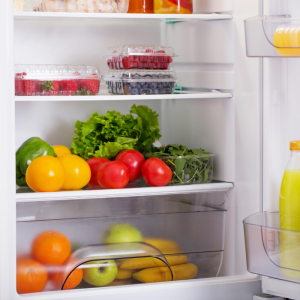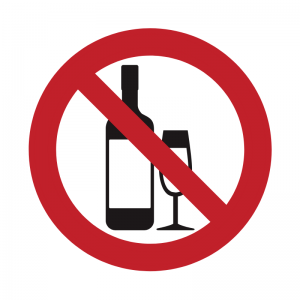 I want to chat a bit today about resilience. Or to use a sailing metaphor, since I am learning to sail, keeping on an even keel in rough waters. It’s something we tend not to think much about until we realize it’s lacking. But it is hugely important to focus on and cultivate resilience each and every day. I chose the world cultivate carefully as it means to develop a quality but also to prepare ground for sowing or planting. Cultivating is careful tending to facilitate growth. And isn’t that what life is all about?
I want to chat a bit today about resilience. Or to use a sailing metaphor, since I am learning to sail, keeping on an even keel in rough waters. It’s something we tend not to think much about until we realize it’s lacking. But it is hugely important to focus on and cultivate resilience each and every day. I chose the world cultivate carefully as it means to develop a quality but also to prepare ground for sowing or planting. Cultivating is careful tending to facilitate growth. And isn’t that what life is all about?
This summer certainly didn’t shape up to be what I expected. Nor did spring for that matter and I imagine autumn will follow suit. In fact, the biggest belly laugh I had lately came in response to one of those coronavirus jokes circulating on the internet. I’m paraphrasing here but it was something along the lines of “anyone who was asked in 2015 ‘Where do you see yourself in 5 years?’ was wrong”. How true!
Keeping on an even keel
It just goes to show that no matter how prepared we think we are or how much planning we do, life can (and does) throw us off course. In fact, I had planned to write this post well over a month ago but I was thrown for a pretty huge loop by an unexpected death in the family. And I know I’m not the only one dealing with sorrows and setbacks, all occurring among the unprecedented backdrop of this pandemic. And that is where resilience comes in.
Resilience is “the capacity to recover quickly from difficulties”, as defined by Oxford Languages. Or, as already mentioned, I like to think of it as keeping on an even keel in rough waters. These difficulties may be both mental or physical (and often they are interrelated). But right now let’s talk a little about the importance of physical resilience during this pandemic.
Is obesity the elephant in the room?
The wide range in severity of illness in response to infection by coronavirus shows the importance of physical resilience. People with chronic health issues or immuno-compromised status do not fare as well. But research is now showing that obesity is also an independent risk factor for more severe illness. This study showed that the “relative risk of critical illness from COVID-19 increased by 44% for people who were overweight … and almost doubled for those with obesity.” There are many possible mechanisms for this:
- angiotensin converting enzyme-2 (ACE-2) is found in larger quantities in those in the obese category and this is the enzyme that SARS-CoV-2 uses for cell entry
- we have seen with influenza that obesity can also alter immune responses and lead to weakened immune defenses and a greater chance of the type of “cytokine storm” that leads to complications with COVID-19
- for example, people who are obese make more complement proteins, which can result in blood clotting mechanisms going awry
- obesity makes it harder to breathe and diminishes lung function
The prevalence of overweight and obesity in now in the range of 60-70% in North American and UK adult populations. So we are talking about a lot of people who are at greater risk than they need to be.
This may sound dire but the good news is that all of these factors can be dialled back in a matter of weeks. Dr. Aseem Malhotra, a cardiologist in London, UK, recently published this article referring to obesity as “the elephant in the room” when it came to COVID complications. In it he mentions that “25-50% of those with type 2 diabetes can significantly improve glycaemic control, blood pressure and send their condition into remission from a variety of interventions including a low refined carbohydrate diet (without needing to count calories) within weeks to months”.
Setting a course for resilience
So what are a few things you could implement right now to set yourself on course for greater physical resilience? This is by no means an exhaustive list, but the key is to reduce physical and mental stress on the body and cultivate supportive and healthy habits.
- Eat healthy, whole foods. If you do one thing for your diet, eat only whole, fresh foods and ensure
 you are having 6 servings of vegetables and 3 fruits per day. These foods are full of the anti-oxidant, anti-inflammatory compounds so vital for good health. In his book, Tiny Habits, Stanford behaviour scientist BJ Fogg talks about his SuperFridge. Click on this link to see a photo of it. Essentially it means stocking your fridge every Sunday (or whichever day works for you) with a week’s worth of healthy foods, prepped and easily accessible. It takes a little work but pays huge dividends.
you are having 6 servings of vegetables and 3 fruits per day. These foods are full of the anti-oxidant, anti-inflammatory compounds so vital for good health. In his book, Tiny Habits, Stanford behaviour scientist BJ Fogg talks about his SuperFridge. Click on this link to see a photo of it. Essentially it means stocking your fridge every Sunday (or whichever day works for you) with a week’s worth of healthy foods, prepped and easily accessible. It takes a little work but pays huge dividends. - Eat slowly. When you rush while eating, digestion doesn’t work well. Simple as that. And poorly digested food not only means poor nutrient absorption but it also can cause inflammation. You would be better off not eating than wolfing your food down in a rush. So take a few minutes before eating and just focus on some deep breathing, so you are in a calmer, more relaxed state before eating. Then chew your food thoroughly. This allows all the enzymatic reactions required to break your food down into components your body can recognize and use to happen. And you are less likely to overeat as well.
- While it is tempting to tipple, try not to. Alcohol is a go-to for many when feeling stressed. But it is
 a false friend. It just increases the stress on the body if you have more than one drink or so. And it leads to weight gain and increased blood pressure. So keep it to one. But not too close to bedtime, as it disrupts the quality of your sleep in a big way. And sleep is vital to resilience…cue segué…
a false friend. It just increases the stress on the body if you have more than one drink or so. And it leads to weight gain and increased blood pressure. So keep it to one. But not too close to bedtime, as it disrupts the quality of your sleep in a big way. And sleep is vital to resilience…cue segué… - Prioritize sleep. See my previous blog post Tips for a Satisfying Slumber for lots of deets on how to achieve this one. Sleeping is when your body repairs itself. Repair is vital for resilience. I refer you to yet another of my previous blog posts called Don’t Snooze, You Lose which details the connection between adequate sleep and optimal health. I rest my case.
- Exercise, but don’t overdo it. Exercise has saved me through this crazy time as it is a
 good “steam-release valve” for mental stress. It also helps me sleep better. But I have to admit I am prone to overdo it. Part of what makes exercise valuable is the principal of hormetic stress. This is when you subject your body to enough of a stressor that it adapts by making your body stronger. But if you overdo it and/or do not give yourself sufficient recovery time, you end up just wearing yourself down. So remember to balance your workouts with days off. And vary your workouts to challenge your body in different ways. Yoga is a great workout both for strength but also flexibility, mobility and peace of mind. I am grateful to my local studio, Prashanta Yoga, for having adapted to this pandemic stress by moving the studio to an online, virtual experience. I highly recommend their classes. You can check them out here.
good “steam-release valve” for mental stress. It also helps me sleep better. But I have to admit I am prone to overdo it. Part of what makes exercise valuable is the principal of hormetic stress. This is when you subject your body to enough of a stressor that it adapts by making your body stronger. But if you overdo it and/or do not give yourself sufficient recovery time, you end up just wearing yourself down. So remember to balance your workouts with days off. And vary your workouts to challenge your body in different ways. Yoga is a great workout both for strength but also flexibility, mobility and peace of mind. I am grateful to my local studio, Prashanta Yoga, for having adapted to this pandemic stress by moving the studio to an online, virtual experience. I highly recommend their classes. You can check them out here. - Spend some time in Vagus. Not Vegas, but Vagus, as in vagus nerve. The vagus nerve is part of the parasympathetic, or rest & digest, branch of the nervous system. It is the balancing branch to the sympathetic, or fight or flight, response. It also acts like a braking system to prevent dangerous “runaway” and/or chronic inflammation, which can contribute to inflammatory diseases, including autoimmune diseases. Good vagal tone promotes resilience (both mental and physical). Check out my post What Happens in Vagus Doesn’t Stay in Vagus for more on improving your vagal tone.
- Tap into your inner Stoic. Stoicism is an ancient philosophy that has guided some of history’s
 greatest men and women and provided a source of much needed strength and stamina for their challenging lives. For inspiration, sign up here for the Daily Stoic. You will receive one email per day inspired by Stoic philosophers Marcus Aurelius, Seneca, Epictetus, and more. Each promises to help you cultivate strength, insight and wisdom to live your best life. The stoic concept of Amor Fati resonated with me, though it is definitely something I need to work harder at cultivating. According to Ryan Holliday, author of The Daily Stoic, Amor fati is the “Stoic mindset that you take on for making the best out of anything that happens: Treating each and every moment—no matter how challenging—as something to be embraced, not avoided. To not only be okay with it, but love it and be better for it. So that like oxygen to a fire, obstacles and adversity become fuel for your potential.” [And now for trivia time! Extra points if you identify the Stoic philosopher pictured at right. Scroll down to the bottom of this post for the answer].
greatest men and women and provided a source of much needed strength and stamina for their challenging lives. For inspiration, sign up here for the Daily Stoic. You will receive one email per day inspired by Stoic philosophers Marcus Aurelius, Seneca, Epictetus, and more. Each promises to help you cultivate strength, insight and wisdom to live your best life. The stoic concept of Amor Fati resonated with me, though it is definitely something I need to work harder at cultivating. According to Ryan Holliday, author of The Daily Stoic, Amor fati is the “Stoic mindset that you take on for making the best out of anything that happens: Treating each and every moment—no matter how challenging—as something to be embraced, not avoided. To not only be okay with it, but love it and be better for it. So that like oxygen to a fire, obstacles and adversity become fuel for your potential.” [And now for trivia time! Extra points if you identify the Stoic philosopher pictured at right. Scroll down to the bottom of this post for the answer].
I wish you smooth sailing
I hope that some of these suggestions resonate and help you cultivate greater resilience. And I wish you smooth sailing into fall. At least that is what my hubby and I plan to do. You will find us on the glittering blue waters of Georgian Bay aboard the Brenda Alice, the sailboat we named in memory of his mom. She was a wonderful woman and a truly resilient spirit. May she rest in peace. And I encourage you to take the time to do whatever floats your boat as the world turns.
[And now for the trivia answer…you win bonus points if you guessed Seneca!]